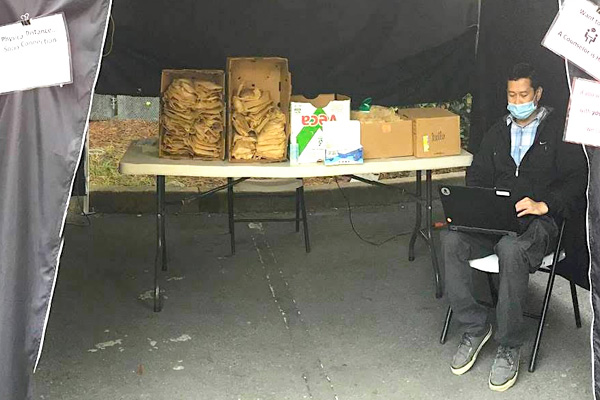Compassion and Civic Duty –
June 16, 2020 – There was also a weekly support group, for both “social interaction” and “accountability to other group members,” Brown said. A hot lunch was yet another draw, with leftovers usually available to take home. Across the state, many of these familiar routines have been cut off. Clinics, drug counselors and patients, practiced at facing an overdose epidemic, are now figuring out what confronting that means in the face of a global pandemic.
At the center of this shift is how to maintain a sense of community, which Brown says is key to addressing addiction, at the same time that best practices urge people to keep their distance.
In Bishop, clinic staff aim to mitigate the spread of COVID-19 by minimizing in-person services when possible. They write prescriptions that will last longer so patients don’t have to come in as frequently, and people who are using drugs now take home larger quantities of safety supplies.
Instead of in-person check-ins, Brown says, counselors connect with their clients over the phone.
“Now more than ever, it’s important to have more communication with that patient,” she said.



